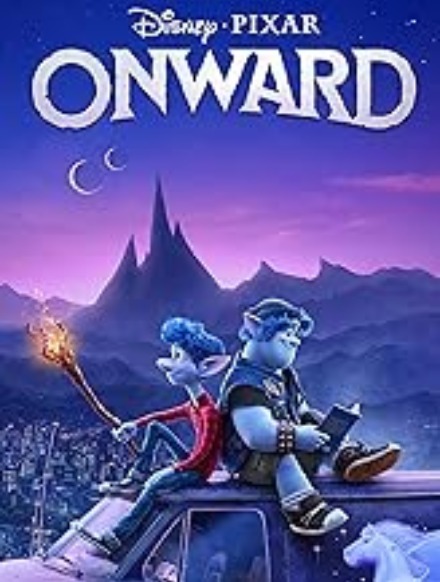
Julia Louis-Dreyfus
A24
Rated: R
111 Minutes
Directed by: Daina Oniunas-Pusic
Starring: Julia Louis-Dreyfus, Lola Petticrew
B
Death has had a long tradition in the movies. I don’t mean people dying; that’s been around since at least The Great Train Robbery in 1903. I mean the portrayal of Death as a character. Death often appears as a variant of the Grim Reaper, a robed, hooded guy carrying a big scythe. Alternatively, some directors have portrayed Death as another type of bizarre monster. Death takes human form in other movies, resembling Brad Pitt or Jessica Lange. Cecil B. DeMille had a huge special effects budget for The Ten Commandments but decided on simplicity. The Death that befell the Egyptians was portrayed as a dark cloud wafting its way through the countryside. But I’ve never seen Death take the form of a talking macaw, until I saw the new movie Tuesday. Once viewers buy into the concept, the movie is an effective and affecting portrayal of the impending death of a teenage girl. However, writer/director Daina Oniunas-Pusić never quite rids the film of its inherent capacity for silliness.
Tuesday is not the day of the week, but the name of a terminally ill 15-year-old girl (Lola Petticrew) living in London. She has some unnamed respiratory illness that
has confined her to a wheelchair, breathing with the help of an oxygen tank. Her American mother, Zora (Julia Louis-Dreyfus), can’t cope. She quit her job and is selling off all their upstairs possessions for money to survive. (Tuesday can’t go upstairs because of her condition and doesn’t know how barren the second-floor rooms are.) Zora spends her days moping in coffee shops and on park benches, leaving Tuesday in the care of a nurse (Leah Harvey).
One day, the macaw Death arrives while Tuesday is outdoors, getting some sun. Death has already had a busy day, putting several people out of their misery (some thankfully, others not so much). Tuesday recognizes what Death is and befriends the bird. That’s not as hard a reach as you might think since Death can shrink and expand from parakeet- to room-size. Tuesday isn’t scared, but she asks for more time to get to know the bird better. She tells Death a joke, plays some music in her room, gives the bird a bath in the sink, and shares a marijuana-laced vape pen. Tuesday is ready to die, but she wants an opportunity to say goodbye to her mother. That farewell doesn’t go as planned when Zora comes home and doesn’t react well to a giant bird in her daughter’s room. The resulting encounter sidelines Death (in a way I won’t spoil), which sends a now immortal world seriously out of whack. It also sends the relationship between mother and daughter more out of whack.
Viewers probably know from this movie’s first scene that Zora is the person in need of help, not Tuesday. Terminally ill children in movies like “Tuesday” are often cheerful and wise beyond their years, preparing their parents for their third-act passing. But none of those families have had to face impending death with a giant macaw in the room. Zora reacts predictably once she realizes her and Tuesday’s situation. Death is a monster to be conquered, and Zora becomes a primal force of nature. But she still needs to recognize that eliminating death isn’t a cure-all. Tuesday is still ill. Other horribly maimed people are suffering. Swarms of typically short-lived insects now reproduce and multiply without check, making outdoor traffic nearly impossible.
Obviously, there are life lessons for Zora to learn, but her learning curve doesn’t go as I expected, once I realized the movie’s total concept. Julia Louis-Dreyfus delivers a solid performance as a neurotic, driven woman who is in a situation she can’t control. She’s always on the edge of losing it, trying to remain focused for Tuesday’s sake. The film’s irony is that Tuesday has already accepted her fate.
When I saw “Tuesday,” I wondered if the film was based on a book, possibly a YA book. The movie’s concept is much easier to accept on the printed page, where readers can imagine what an encounter with a size-shifting macaw would be like. However, “Tuesday” is an original story, and writer/director Pusic rarely plays it for laughs. A handful of funny moments seemed intentional, but this may have been just an example of the movie’s chief weakness. For the most part, “Tuesday” is an effective, serious drama.
You’ll note that I said “for the most part.” The prototypical image of Death as the Grim Reaper in Ingmar Bergman’s “The Seventh Seal” has been played for laughs by everyone from Woody Allen to Bill and Ted. It’s hard for 21st-century audiences to see footage from the original Bergman classic and still take that film seriously. “Tuesday” suffers from the same problem on a smaller, more occasional scale. Some of the material here is just too silly to take seriously, pulling viewers out of the director’s carefully constructed fantasy. Also, hints of Louis-Dreyfis’ Elaine character from “Seinfeld” appear here at disconcerting moments.
I admire movies that take chances, and the filmmakers took a huge chance with “Tuesday.” I’ll wager that 50 years from now, it will be the only movie ever to portray Death as a talking bird. Take away that premise, and “Tuesday” is an unmemorable entry in a long line of dying-child movies. Now, I’ll think of “Tuesday” whenever I see a melodramatic Lifetime movie with the same theme. And they will be pleasant memories of a bold and mostly successful attempt to take on a complex subject.
In this clip, Julia Louis-Dreyfus discusses making the movie with Stephen Colbert:
Read other reviews of Tuesday:
Header Photo: "Riot Radio" by Arielle Calderon / Flickr / CC By / Cropped
Silver Screen Cinema Banner Photos: pedrojperez / Morguefile; wintersixfour / Morguefile
Join Button: "Film Element" by Stockphotosforfree
Twitter Icon: "Twitter Icon" by Freepik
Facebook Icon: "Facebook Icon" by Freepik
LinkedIn Icon: "LinkedIn Icon" by Fathema Khanom / Freepik
Goodreads Icon: "Letter G Icon" by arnikahossain / Freepik
Julia Louis-Dreyfus: "Julia Louis-Dreyfus" by Gage Skidmore / Flickr / CC BY-SA 2.0
Certain images on this site appear courtesy of Amazon.com and other sponsors of Silver Screen Videos for the purpose of advertising products on those sites. Silver Screen Videos earns commissions from purchases on those sites.
© 2024 Steven R. Silver. All rights reserved.






